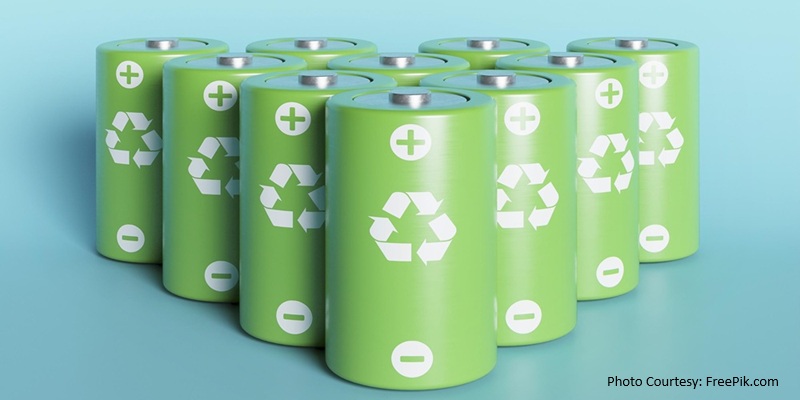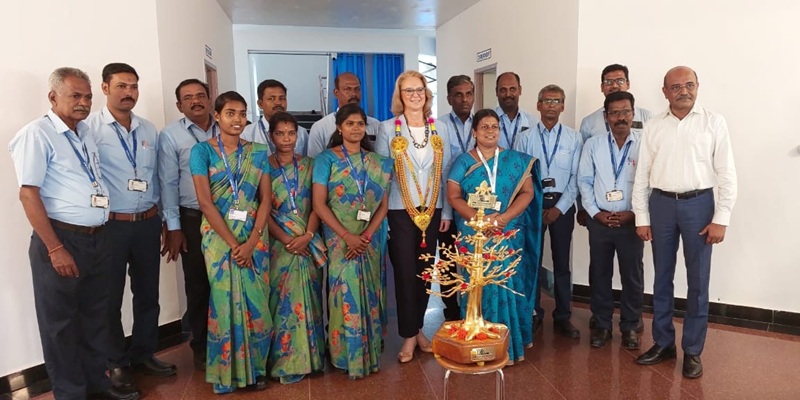Schedule a Call Back
Surface engineering plays big role in production of smart materials
 Interviews
Interviews- Nov 03,22
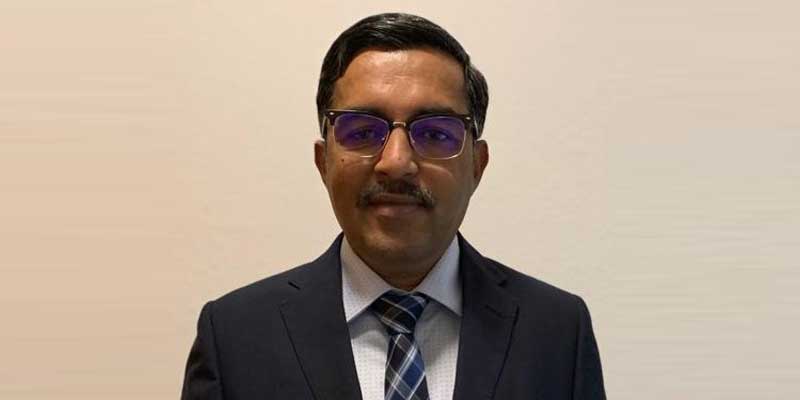
Future smart manufacturing is expected to be a perfect synthesis of advanced robots, artificial intelligence (AI), and smart materials used to improve industrial performance. The Mumbai-based Surface Modification Technologies Pvt Ltd, which has been working in the surface engineering industry for approximately 20 years, has been assisting industries in comprehending smart materials (metals and metal alloys). In this interview with Rakesh Rao, Dr Umesh Mhatre, Managing Director, Surface Modification Technologies Pvt Ltd (SMT), discusses significance of surface engineering in today's manufacturing world and how SMT is helping companies to produce smart materials.
How is Surface Modification Technologies serving the manufacturing industry?
SMT has been working in the surface engineering industry for approximately 20 years. We have been working hard to raise awareness of the value of surface engineering in preserving the equilibrium between product qualities and manufacturing cost effectiveness over all these years of providing surface engineering services. Future smart manufacturing is the perfect synthesis of advanced robots, artificial intelligence, and smart materials used to improve industrial performance. At SMT, we offer services that assist industry in comprehending smart materials (metals and metal alloys) and their proper treatments to prevent or regulate the key features of materials that determine their "life" (such as wear, corrosion and fatigue). One of our key strengths is physical vapour deposition (PVD). Through our cutting-edge coating facilities, we are providing our PVD coating services out of Mumbai, Pune, and Bangalore.
What kind of changes are you seeing in the surface engineering space?
Surface engineering, which has a significant role to play in the production of smart materials, is aimed at changing the microstructure and/or composition of a component's near-surface region in order to enhance surface-dependent engineering properties. Approximately twenty years ago, surface engineering was discussed and suggested. Since that time, these techniques have continued to change to meet the growing demands of contemporary industrial advancements.
Surface engineering generally went through four stages of development. The first stage is made up of conventional single-layer and single-metal coating techniques like electroplating and laser melt coating. Painting and surface protection lacquers were also utilised at this era. In the second stage, more complex plasma-based techniques such as physical and chemical vapour deposition along with near surface modification treatments such ion implantation, plasma nitriding, laser treatment etc. were developed and effectively used. A composite surface coating method, which combines two techniques for a cooperative effect, is used extremely effectively in the third stage of development. Consider a multilayer composite coating with a sophisticated under surface treatment. The fourth and most recent is nano surface engineering, which combines surface engineering methods with a complex of nano-materials and nanotechnologies. More and more nano-materials and nanotechnologies are being used in surface engineering as a result of the advancement of nano-science and technology.
How important will be adoption of modern surface engineering technologies for increasing India's competitiveness?
Science and technology (S&T) has long been recognised as a crucial tool for advancing and supporting the nation's social and economic development. The availability of materials with the right qualities and performance characteristics is the main constraint on the development of many, if not most, future technologies, as is immediately apparent when examining the success stories of the world's most advanced countries. Because of the potential contributions that materials science and surface engineering technology could make to cutting-edge manufacturing techniques and products, they have deemed it to be a core field of research. Unquestionably, India's innovation strategy must include a strong emphasis on fundamental materials science and locally developed modern surface engineering expertise in order to support both core and frontier industries that will propel sustainable and resilient socioeconomic growth and boost India's competitiveness. How are you helping your customers to increase their efficiency and productivity? Today, India is on the verge of a tremendous economic opportunity. This is a once-in-a-lifetime chance. As a result, it is far more critical for our manufacturers to achieve consistency and dependability in production to meet global standards. The current state of the Indian MSME sector is one of low competitiveness due to a lack of knowledge and exposure in comparison to the constantly growing consumer demand for modern domestic technology. This imbalance is forcing the MSME sector to improve the quality of technological machinery and engineering materials. Selecting the right material is critical to its success. Many customers approach to us with a new product at conceptual level or one that is failing in production, seeking assistance in selecting the appropriate material and material treatments to increase the efficiency and productivity of their products. We then work together to figure out what function they are attempting to perform. We can achieve success by properly understanding our clients' needs and treating these materials with appropriate in-house surface engineering technologies.
How important are efficient surface modification technologies for making smart products/tools?
Surface modification technologies create new materials with desired properties. Along with these distinct capabilities, it also provides material savings and environmental benefits in a variety of applications, such as increased service life, lower emissions and energy consumption, and improved recyclability to support the smart manufacturing concept. Many modern surface engineering processes have little impact on the environment. Constant advancement in the field of surface engineering allows for the flexibility of tailor-made functionally graded structures capable of responding to their surroundings. This adaptability will aid in the expansion of sensor technology use. Overall, surface engineering will play an important role in the industrial era of smart manufacturing.
What are the advantages of Physical Vapor Deposition (PVD) coating? What are latest trends in PVD technology?
PVD stands for Physical Vapor Deposition, a process in which a solid material is vaporised in a vacuum environment and deposited as a coating on an exposed surface. It can be a single metal, alloys or their nitrides, oxides, carbides, or carbo nitrides, and so on. The Physical Vapor Deposition technique is more environmentally friendly than available coating techniques because it significantly reduces the amount of toxic substances that must be used during production. The PVD coating is extremely thin (1-5 microns), ensuring that the product retains its original shape completely. Despite being an extremely thin layer, these coatings help make the product stronger due to their extremely high hardness and more corrosion-resistant than coatings applied through other processes. These coatings are also extremely resistant to temperature and abrasion and are so long-lasting that no top coating or additional support is required. Current trends in physical vapour deposition methods show that these cutting-edge technologies are being used to deposit thin films on a variety of industrial applications. Thin films are used in a variety of applications ranging from medical devises, microelectronics and nanotechnology to sustainable energy and mechanical properties enhancement. Thin film deposition methods were also found to be more efficient, accurate, long-lasting, and cost-effective than their predecessors. Constant advancements in thin film deposition techniques as this is an evolving aspect of materials engineering, technology becomes smarter, and materials that support technology are required.
India aims to become a manufacturing superpower of the world. How can SMEs contribute to make India a manufacturing superpower?
It is now well-known fact that the SMEs sector is a very strong building block of a healthy manufacturing hub due to its unique capabilities in innovative manufacturing, operational flexibility, lower costs, and adaptability of new technologies. They can adapt. SME sector also strongly contribute in driving countries' economies by creating job opportunities, aid competition in emerging markets, and have a strong presence in various industrial sectors. All of these characteristics of SMEs make them an undisputed candidate for India's goal of becoming a manufacturing hub. Government assistance, adequate infrastructure, easy access to resources, and ease of doing business could all help to empower our SEM sector.
Are there cost-effective ways for SMEs to make manufacturing more efficient/smart?
Navigating cost-effective production without sacrificing product quality is a part of the day-to-day life of the SME sector. The SME sector is extremely vulnerable to industrial weather changes. As a result, the challenge is to strike a balance between the adoption of high-cost modern technologies and production cost effectiveness. Constant technological advancement also opens up new avenues for lowering production costs. Automation, best digitization, standardisation of equipment and machineries, standardisation of operating procedures with proven tools such as ISO, ERP, 5S, and so on could undoubtedly assist SMEs in becoming cost-effective in the upcoming modern manufacturing era.
Any plans to launch new products/services in the near future?
Yes, Surface Modification Technologies is planning to be ready for future industrial opportunities. We intend to expand in the areas of knowledge creation and intellectual property export in surface engineering and state-of-the-art PVD equipment manufacturing. We intend to meet the high-quality growing demands of the Indian industry by adding new smart coatings for functional applications and glittering new colour shades for aesthetic applications.
What are your growth plans?
We currently have 14 PVD coating machines and a complete PVD coating infrastructure spread across Mumbai, Bangalore, and Pune. We intend to expand our PVD coating business in North India, Gujarat, and South India by adding at least 6 more PVD coating machines and allied state-of-the-art infrastructure to support surface engineering innovation and services by 2026.
Related Stories
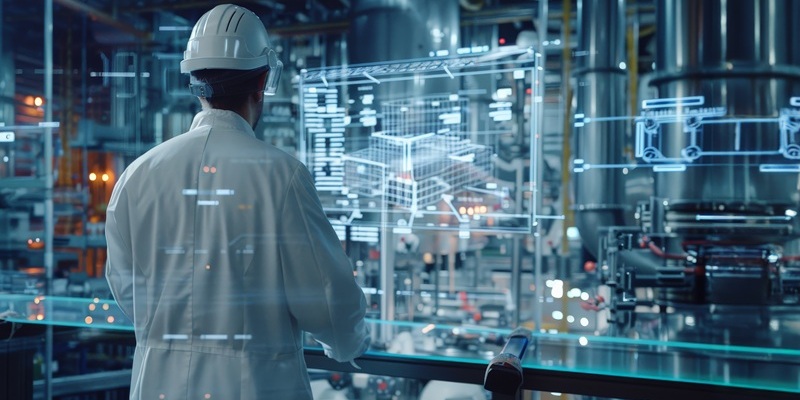
6 Nonnegotiable requirements for your smart factory transformation
The smart tech world is seemingly never-ending, but a few essential staples create an unshakable foundation. Here, Emily Newton suggests six essential ingredients for a transformation to smart facto..
Read more
India is a key strategic market for Hexagon: Jason Walker
In this interaction with Rakesh Rao, Jason Walker, VP, General Manufacturing Practice Lead, Hexagon, sheds light on the factories of the future and importance of India for Hexagon.
Read more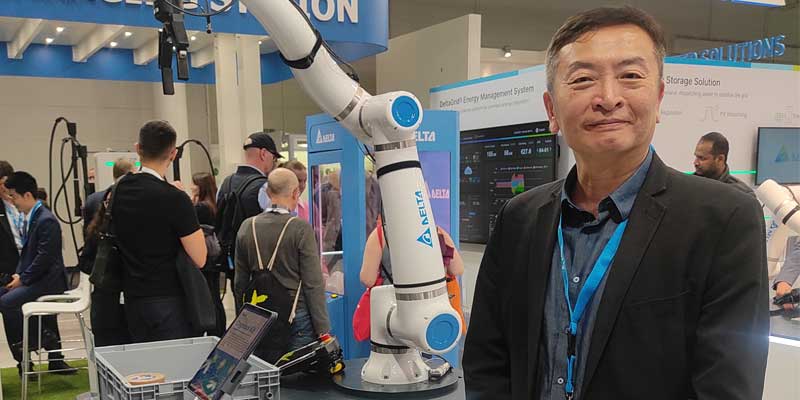
Localisation is Delta Electronics’ key strategy in India: Andy Sun
In this interview with Rakesh Rao, Andy Sun, Senior Director of Sales and Marketing, Industrial Automation BG, Delta Electronics, discusses manufacturing trends and Delta’s future growth plans for..
Read moreRelated Products
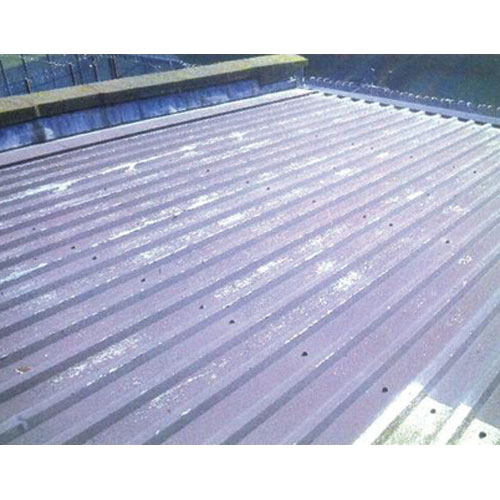
Polysiloxane Anti Corrosion Coating
Clean Coats offers polysiloxane anti corrosion coating.
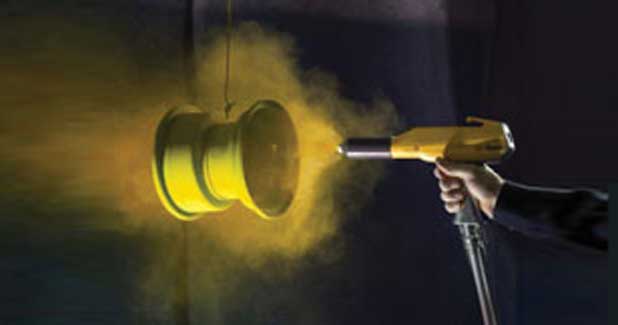
Powder Coating Services
Jekmin Industries offers a wide range of powder coating services Read more
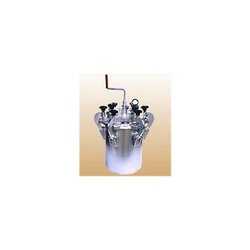
Painting Equipments
We are a renowned manufacturer and supplier of a wide range of Blasting and Painting Machines, Testing Instruments and Abrasive Products. The products offered by us are manufactured using high-grade r Read more






